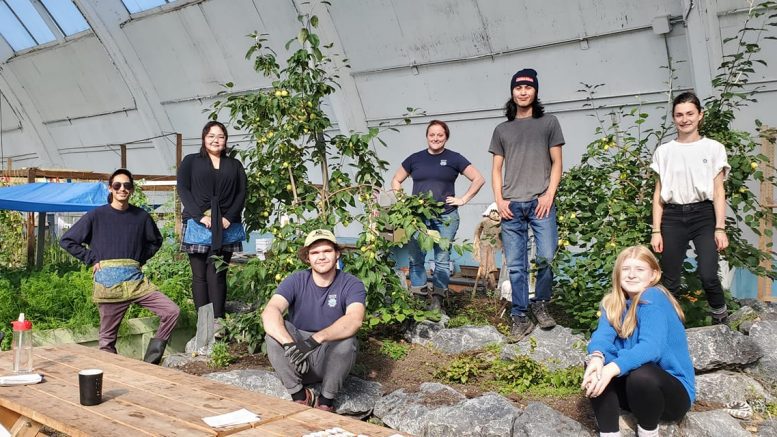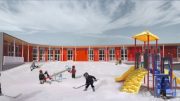Inuvik will be receiving a new specialized year-round greenhouse in an effort to reduce food scarcity in the North.
Ray Solotki, the Inuvik Community Greenhouse executive director, says the facility — called a containerized greenhouse — will grow leafy greens.
She explains fresh leafy greens are a rarity in the Beaufort Delta as they are often already beginning to spoil the moment they arrive on grocery store shelves.
“They’ve traveled so far, that they’re not green anymore,” Solotki says.
The plan for the containerized greenhouse is to create a local industry and sell the fresh leafy greens to the community with different retailers.
A downside to the containerized greenhouse is that it can’t grow any root vegetables such as potatoes, radishes or carrots. Solotki says she’s aware that leafy greens alone won’t solve the Beaufort Delta’s issues with food access, but it can help.
“But we’re trying to create a production facility that puts an emphasis on local food,” she says.
Solotki says she regularly hears the argument that there isn’t a demand for things like leafy greens in northern communities. This is because traditional meals don’t tend to include those ingredients.
But she argues it’s hard to incorporate fresh vegetables, when they don’t exist in northern stores.
“We’ve all bought groceries in the North, we know what it’s like,” she says. “It’s very hard to say ‘Yes, as a people, we don’t eat fresh, local vegetables,’ when there are none. If you don’t have the choice, of course it’s not a part of your diet.”
Inuvik will be receiving the containerized greenhouse from Whitehorse-based company ColdAcre.
A containerized greenhouse
A containerized greenhouse is able to grow year-round by pumping nutrient-rich water in a closed loop which provides sustenance to the plants.
“It just is this continuous loop through and they grow using heat and light,” Solotki explains.
Inuvik’s current greenhouse relies entirely on solar power meaning most of the production must come from the summer months.
However, there are critiques of the containerized greenhouses, including the fact it’s not considered organic.
“They don’t add tons of chemicals and things but it’s technically not classified as organic,” Solotki explains.
Funding for the containerized greenhouse came from the Canadian Northern Economic Development Agency, the Government of the Northwest Territories and the University of Saskatchewan (USask).
USask will use the facility to create a training program for residents from other areas of the Beaufort Delta.
Solotki says she hopes other communities will follow Inuvik’s lead in establishing a containerized greenhouse to create more local food production in the Arctic.
Going forward, Solotki says she’s hoping to receive recommendations for the different kinds of fresh leafy greens people are interested in.
She says she is also looking for retail partners to sell the leafy greens.
Luke Carroll is a journalist originally from Brockville, Ont. He has previously worked as a reporter and editor in Ottawa, Halifax and New Brunswick. Luke is a graduate of Carleton University's bachelor of journalism program. If you have a story idea, feel free to send him an email at luke.carroll@cklbradio.com









